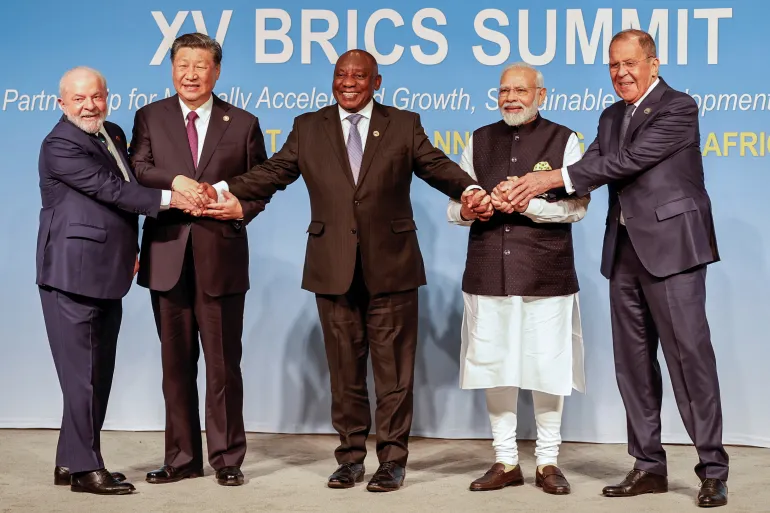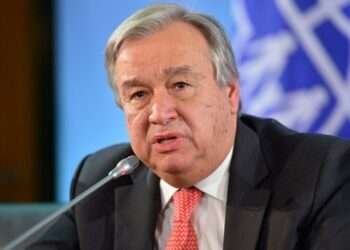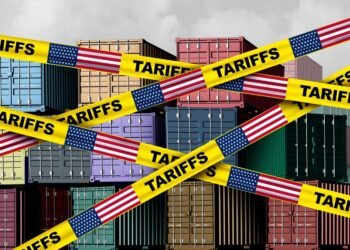Financial experts have raised their voices on the possible emergence of the BRICS currency, aimed at countering the financial hegemony of the United States dollar.
According to experts, the growing geopolitical tensions and the dying ties between the West and Russia and China, have contributed to the currency controversies. In the same vein, Russia and China and other nations have campaigned for a worldwide transition from the dollar.
Shirley Ze Yu of London School of Economics, is of the opinion that, due to the attitude of sanctions by the US government on nations like Iran and Russia, emerging economies desire to opt for different currencies for trade.
“As the US weaponized the dollar in the Russian and Iran sanctions, there is increasing desire by other developing countries to seek alternative currencies for trade, investment, and reserves, as well as developing alternative multilateral clearance systems outside of SWIFT.
“Developing countries have suffered widely from paying higher interest rates on their dollar debt and battling the exchange rate impact from a strong dollar. The interest to borrow in local or other currencies is strongly motivated by economic consideration.”
Shirley Ze Yu, a Senior Fellow at London School of Economics.

Additionally, a policy analyst on Russia-Africa relations, Gustavo de Carvalho, believes that, the driving force in developing countries quest to unearth an alternative solution, has been more of a carefully planned considerations.
“What are the risks that we are facing by engaging with one currency globally that may be utilized for political purposes.”
Gustavo de Carvalho, Russia-Africa Relation Analyst.
De Carvalho presented five “very loose” ideas for BRICS to take into consideration. These options include using a basket of currencies from BRICS nations, using gold as a base for a new possible currency, or even using cryptocurrency.
“Each of them are quite separate and probably much more mid-to-long term than they are short term”
Gustavo de Carvalho, Russia-Africa Relation Analyst.

According to Danny Bradlow, a professor at University of Pretoria, few people would prefer to return to the gold standard, and cryptocurrencies are a less likely choice because they are “even more risky.”
“Which cryptocurrency would you use, which stable currency, and none of them have shown to be particularly useful in international trade.”
Danny Bradlow, University of Pretoria Professor.
Howerver, some experts have expressed doubts on the creation of a separate BRICS currency.
“Creating the BRICS currency will require a set of institutions. Institutional creation requires a common set of standards and underpinning values. These are very difficult to achieve, although not impossible.”
Shirley Ze Yu, a Senior Fellow at London School of Economics.
Chris Weaffer, an investment analyst has described BRICS idea of creating their currency as a “non-starter.”
“Even people in various governments know that this is not going to happen, or not for a very, very long time,”
The Dominance Of The US Dollar And Its Opposition
The United States dollar has exerted dominance in the global financial system for over 80 years. The dollar gained its prominence after the WWII and has been the pivot of trade and the measure for other currencies’ valuation.

However, the growing financial pressure have prompted BRICS to implement measures to reduce their over reliance on the US dollar.
At the summit of the BRICS alliance of developing nations, the President of Russia, Vladimir Putin declared that, BRICS process of de-dollarization is “irreversible” and “gaining pace.”
Also a Russian official affirmed that, BRICS nations are on the verge of developing its own currency, which would be the center of trade among the bloc’s member countries.
At commencement of the year, the President of Brazil, Luiz Inacio Lula da Silva claimed that, he doesn’t comprehend why trade relations among countries, are centered on the US dollar.

Russia has been rocked with sever Western sanctions since it began its military operation in Ukraine.
The West has frozen the over 50% of Moscow’s foreign asserts, as well as the removal of key Russian financial firms from the global monetary facilitating system, SWIFT.
Also, the United States extended its ban on the exportation of semi-conductor technology to Beijing.
READ ALSO: Human Exploitation Not Accept Not Accepted In Modern Age, UNESCO Boss Pleas























